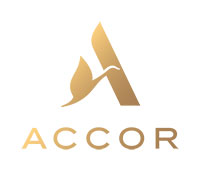IHG launches the world’s first 'green' hotel
|
IHG launches the world’s first 'green' hotel
|
Catégorie : Monde - Économie du secteur
- Projets hôteliers
Ceci est un communiqué de presse sélectionné par notre comité éditorial et mis en ligne gratuitement le 30-04-2008
This could be the world's first ever 100 per cent ecologically-friendly hotel - and its 'green' credentials will set the benchmark for hoteliers around the world.
The solar powered 'Innovation Hotel' - which is the brainchild of the InterContinental Hotels Group - outlines the latest technology in energy and water conservation and recycling.
Among the 'green' features of the futuristic hotel:
* The forwarding of all unused non-perishable food to charities or food banks
* Solar panels on the roof to heat water
* A rainwater harvesting system to supply water to toilets
* A roof garden rich in shrubbery to provide extra insulation
* Windpower to generate electricity for the hotel
* Recycled glass windows
* Furniture and fittings made entirely from recycled materials
* And household waste to provide heat and power
Hotel chiefs say the Innovation Hotel's features could be earmarked as standard across all IHG brands within the next few years. The virtual property has been put on the company website to get guests views on its features.
David Jerome of IHG, who were also the first hotel chain to introduce a set of 'green' guidelines for hotels in 1991, said:
''People who do their bit for the environment when they're at home are likely to be interested in doing the same when they're staying in a hotel.
''Responsible tourism is about growing in a way that makes sense for business while managing our impact on the environment and community. We want to know what ‘green' features are important to guests before making them part of brand standards. This gives them a chance to weigh in with their ideas."
The first inkling a guest will get of the Innovation Hotel's green attributes is the green roof - planted with low-maintenance plants - which improves the thermal performance of the hotel and helps keep it cool in warm weather and insulate it in winter.
The plants and thin layer of soil work like a sound barrier, particularly when they're wet, helping to reduce noise pollution.
Other environmental benefits include improvements to air quality, biodiversity and storm water run off.
Natural lava stone signage at the entrance and on the lawns replaces traditional plastic and metal signs.
All the furniture in the reception is made from recycled material and all the paper used by the receptionists will also be recycled.
The decor is low emission paint, all the artwork produced by local artists to ensure a low carbon-footprint and there are recycling bins for guests to use.
All unused food from the kitchens is packaged and delivered to local charities or food banks to cut wastage.
And left over scraps are composted to create a rich fertiliser for use on hotel plants and lawns.
In the bedroom all furniture and fittings including towels are made from recycled materials, mattresses consist of natural fibre such as horsehair, as will carpets.
Bathrooms feature low-flow showerheads and dual flush toilets.
On the roof there will be up to four huge solar panels drawing energy from the sun to heat water and help cut back on non-renewable energy use.
Harvesting systems collect rainwater in tanks either on the roof or underground.
In regions where there's plenty of regular rain, harvesting is an effective and low-cost way of reducing demand on local water supplies.
The hotel uses the rain water to flush toilets and water grounds, as well as for dishwashers and washing machines.
Oil produced from household waste can be used as bio-fuel instead of fossil fuels to generate heat and power.
Senior Vice President of Corporate Responsibility at IHG, David Jerome, added:
''We have some excellent examples of responsible tourism already underway in our hotels. Now we're looking at setting company-wide goals for our business to deliver real benefits to the environment, based on clear understanding of where we can make a difference and on guests' needs.''
IHG, owner of Holiday Inn, has 200 new build Holiday Inn prototypes open or under construction - which use 30 per cent fewer materials to build and requires 20 per cent less energy to run.
And a number of environmental initiatives exist at its 4,000 hotels around the world.
The InterContinental Thalasso Spa, Bora Bora has the world's deepest underwater pipeline, feeding cold sea water to an eco-friendly air-conditioning system and The InterContinental Willard Washington is entirely powered by energy from wind farms.
But the Innovation Hotel initiative will ensure IHG is the first hotel group to roll-out its 'green' credentials company-wide.
|
|




